Not a few people suffer from an acute dread about visiting a dentist. All manners of imagined fears seem to close in upon them especially as the date of the appointed visit approaches nearer.
These fears and anxieties people suffer are, in most cases, unfounded, or at least, exaggerated, especially in this age of modern dentistry when dental treatments are becoming increasingly ‘pain-free’.
Dental Phobia And Dental Anxiety: Is There A Difference?
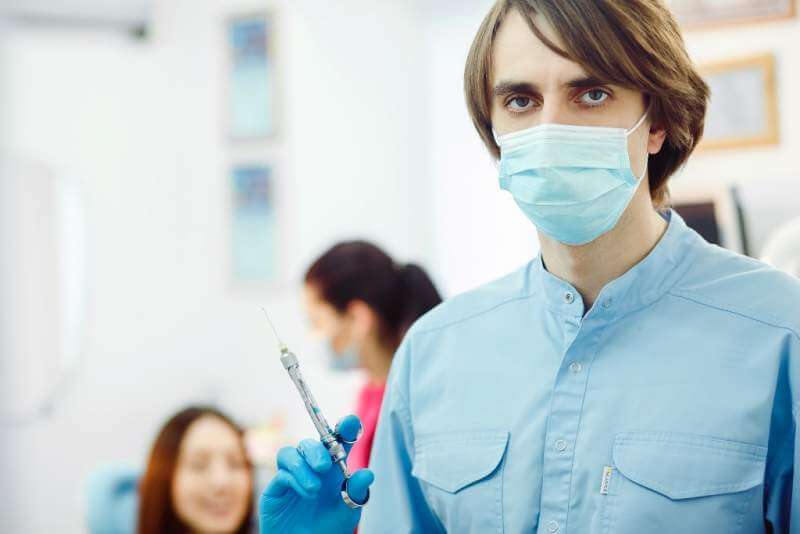 To begin with, dental phobia, fear or anxiety—none of these are, strictly speaking, technical terms. However, commonly, it is said that someone is a victim of dental phobia if that person experiences this fear to an extreme and unreasonable degree when he is supposed to meet a dental appointment.
To begin with, dental phobia, fear or anxiety—none of these are, strictly speaking, technical terms. However, commonly, it is said that someone is a victim of dental phobia if that person experiences this fear to an extreme and unreasonable degree when he is supposed to meet a dental appointment.
On the other hand, dental fear or dental anxiety generally refers to the worries or anxieties people suffer, to different degrees, when they need to see a dentist. According to one piece of statistics, as many as 75% of American people suffer from dental anxiety whereas something akin to dental phobia has been observed in only 10% to 15% of Americans.
However, we also need to take these statistics with a pinch of salt since the figures regarding dental fear and anxiety in people often tend to vary rather radically from one source to next. Here is another piece of stat for example that informs us that 3 out of 6 people in the US suffer from dental phobia (possibly meaning dental fear rather than phobia) whereas the numbers for Europe and Asia are 3 out of 8 and 4 out of 7, respectively. This again, in part, reflects the common confusion between the terms.
Does Age Have Something To Do With Dental Fear?
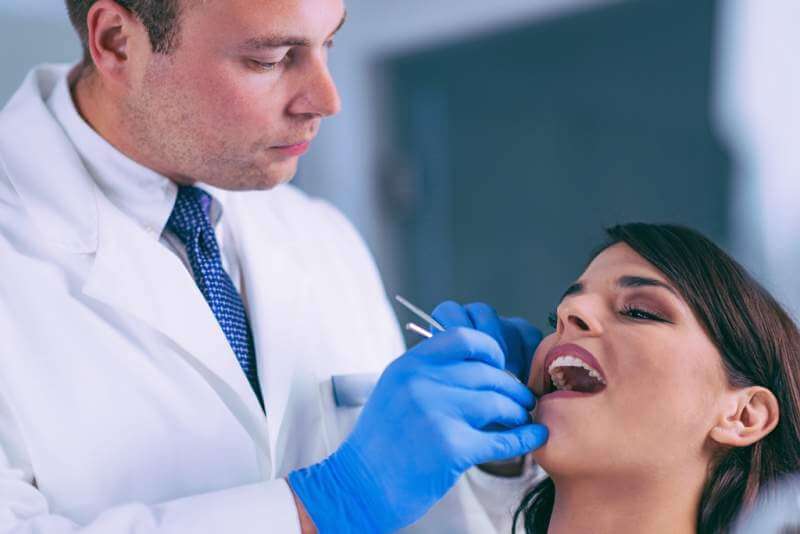 Here again, the answers we find are somewhat contradictory. According to a few sources, these fears are commonly observed in a higher degree in adults aged 24 years or older. The argument made in support of this runs something like this—that since most people falling into this age category had received their earliest dental treatments at a period when dental procedures were relatively less ‘pain-free’, those memories of the pain and discomfort seem to linger with them and often result in anxiety and stress when the time comes to visit a dentist.
Here again, the answers we find are somewhat contradictory. According to a few sources, these fears are commonly observed in a higher degree in adults aged 24 years or older. The argument made in support of this runs something like this—that since most people falling into this age category had received their earliest dental treatments at a period when dental procedures were relatively less ‘pain-free’, those memories of the pain and discomfort seem to linger with them and often result in anxiety and stress when the time comes to visit a dentist.
Sounds logical enough? Well, then we run into another equally reputable source which claims that the phenomenon of dental fear occurs more in younger people than in those from the older generations. So, make what you want to make of it! But, although we cannot provide any evidence in support of this conjecture, perhaps we can assume that more than a person’s age, it is his mental constitution as well as his past experiences that play the determining role in whether or not he will suffer from dental anxiety and fear.
Reasons For Having It
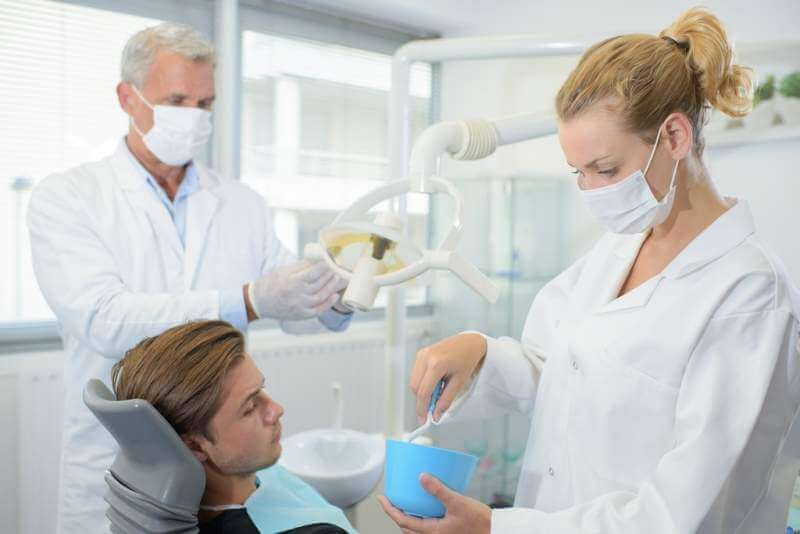 Fears of undergoing dental procedures may result from both direct and indirect experiences. If a person had suffered in the past a particularly painful experience when receiving some dental treatment, then it is not difficult to see why he or she may feel somewhat stressed when visiting a dentist. However, it is just as common to develop a fear from indirect experiences, such as when a friend or relation of yours talks to you about how much pain they had suffered while receiving dental treatment or undergoing a surgery, etc. On top of these, there is the mass-media which often portrays dentistry in a negative light. Now, even if it done in a humorous manner, people are still prone to get affected by this sort of negative portrayals.
Fears of undergoing dental procedures may result from both direct and indirect experiences. If a person had suffered in the past a particularly painful experience when receiving some dental treatment, then it is not difficult to see why he or she may feel somewhat stressed when visiting a dentist. However, it is just as common to develop a fear from indirect experiences, such as when a friend or relation of yours talks to you about how much pain they had suffered while receiving dental treatment or undergoing a surgery, etc. On top of these, there is the mass-media which often portrays dentistry in a negative light. Now, even if it done in a humorous manner, people are still prone to get affected by this sort of negative portrayals.
Negative Effects
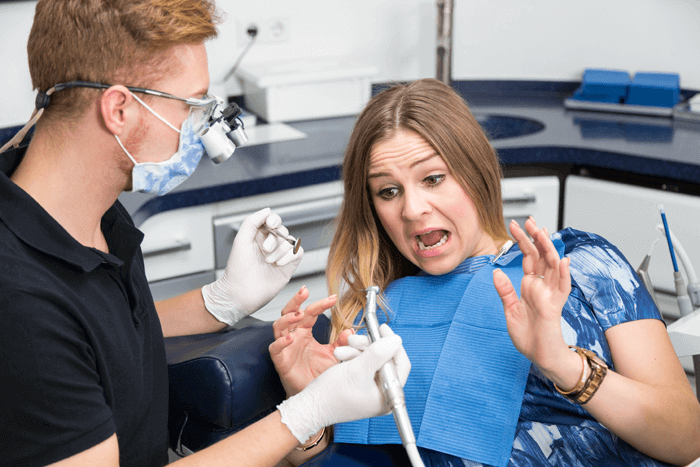 People suffering from dental fears often tend to put off their routine visits to their dentist and if this is carried on for a considerable period of time, they make themselves vulnerable to poor oral health that includes gum disease and infections, recurring pain, damaged and discolored teeth and more. Poor oral health also affects your general health conditions and in some cases, can even lead to extremely serious conditions such as lung infections, heart disease, etc.
People suffering from dental fears often tend to put off their routine visits to their dentist and if this is carried on for a considerable period of time, they make themselves vulnerable to poor oral health that includes gum disease and infections, recurring pain, damaged and discolored teeth and more. Poor oral health also affects your general health conditions and in some cases, can even lead to extremely serious conditions such as lung infections, heart disease, etc.
Then, there are emotional consequences as well. Discolored and unsightly teeth often make people lose their self-esteem to a certain extent. They may tend to feel insecure and overly self-conscious and these things can have serious consequences on their general well-being.
What Dentists Are Saying About Dental Fear
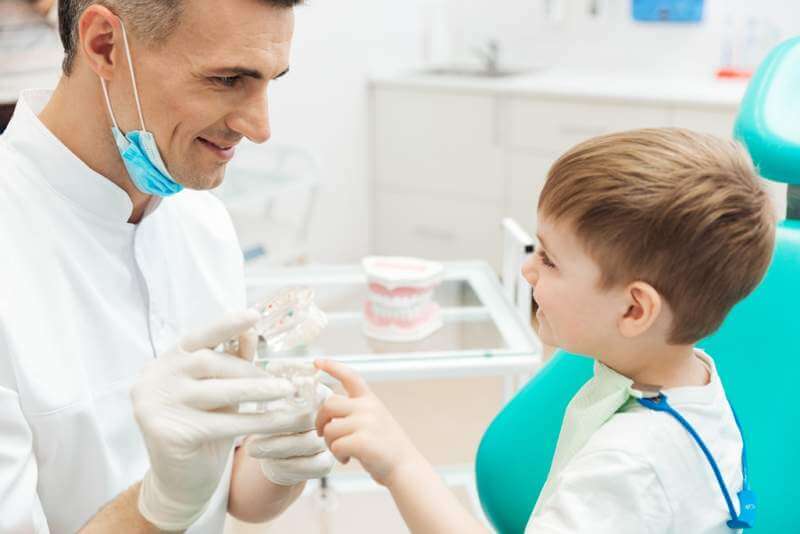 The dental industry has taken a number of meaningful steps to help people get rid of their often irrational fears. According to many, dental fears are mainly caused by people’s notions of old-time dentistry when some of the procedures performed could indeed be painful enough. However, that is a thing of the past. In the age of modern and aesthetic dentistry and advanced and relatively painless local anesthetic procedures, there is little to be afraid of.
The dental industry has taken a number of meaningful steps to help people get rid of their often irrational fears. According to many, dental fears are mainly caused by people’s notions of old-time dentistry when some of the procedures performed could indeed be painful enough. However, that is a thing of the past. In the age of modern and aesthetic dentistry and advanced and relatively painless local anesthetic procedures, there is little to be afraid of.
And yet, the dentists themselves concede that many patients they receive still suffer from some degree of anxiety and stress. Again, many dental professionals blame mass-media for the negative image that dentistry has received for ages past. In this connection, one cannot but help recall Hercule Poirot’s remark in ‘One, Two, Buckle My Shoe’ where the famous detective explains to a friend why he is so gay tonight, saying that—no, he isn’t intoxicated at all, but he has just returned from his dentist’s and since this means that he won’t have to be back there for at least another six months, is not this reason enough for his present state of elation?!!
Then again, when was it exactly that Agatha Christie lived?
How To Handle Your Dentophobia
 On a more serious note, a number of measures have been taken to help people rid of their dental fears. One is setting up specialized dental fear facilities. In this type of clinics, both dentists and psychologists act in unison to assure the patient and to help him get free of his anxieties.
On a more serious note, a number of measures have been taken to help people rid of their dental fears. One is setting up specialized dental fear facilities. In this type of clinics, both dentists and psychologists act in unison to assure the patient and to help him get free of his anxieties.
Another effective method is what is commonly known as ‘gentle dentistry’. Here, the dentist will often follow a ‘tell, show, do’ method. This means the dentist will first carefully and, in simple terms, explain the procedure to the patient (Tell). According to an article published on the BBC website, doctors use the “Talking Therapy” to help patients who have fear of dental treatment. The result shows some patients going through treatments even without sedation.
Next, the patient will be shown, often with the help of computer graphics, how the procedure will be performed and what sort of implements will be used and explain their individual functions (Show); and finally, once the dentist feels that the patient is convinced and feels relaxed enough, he will perform the procedure (Do).
